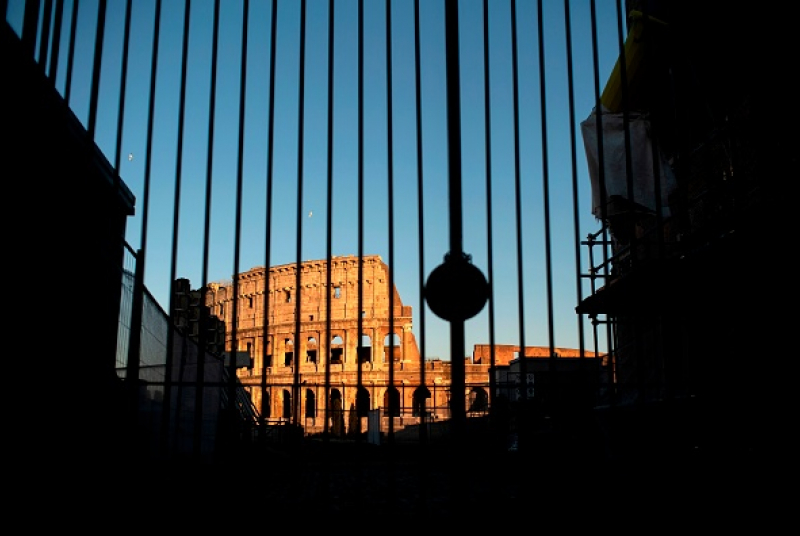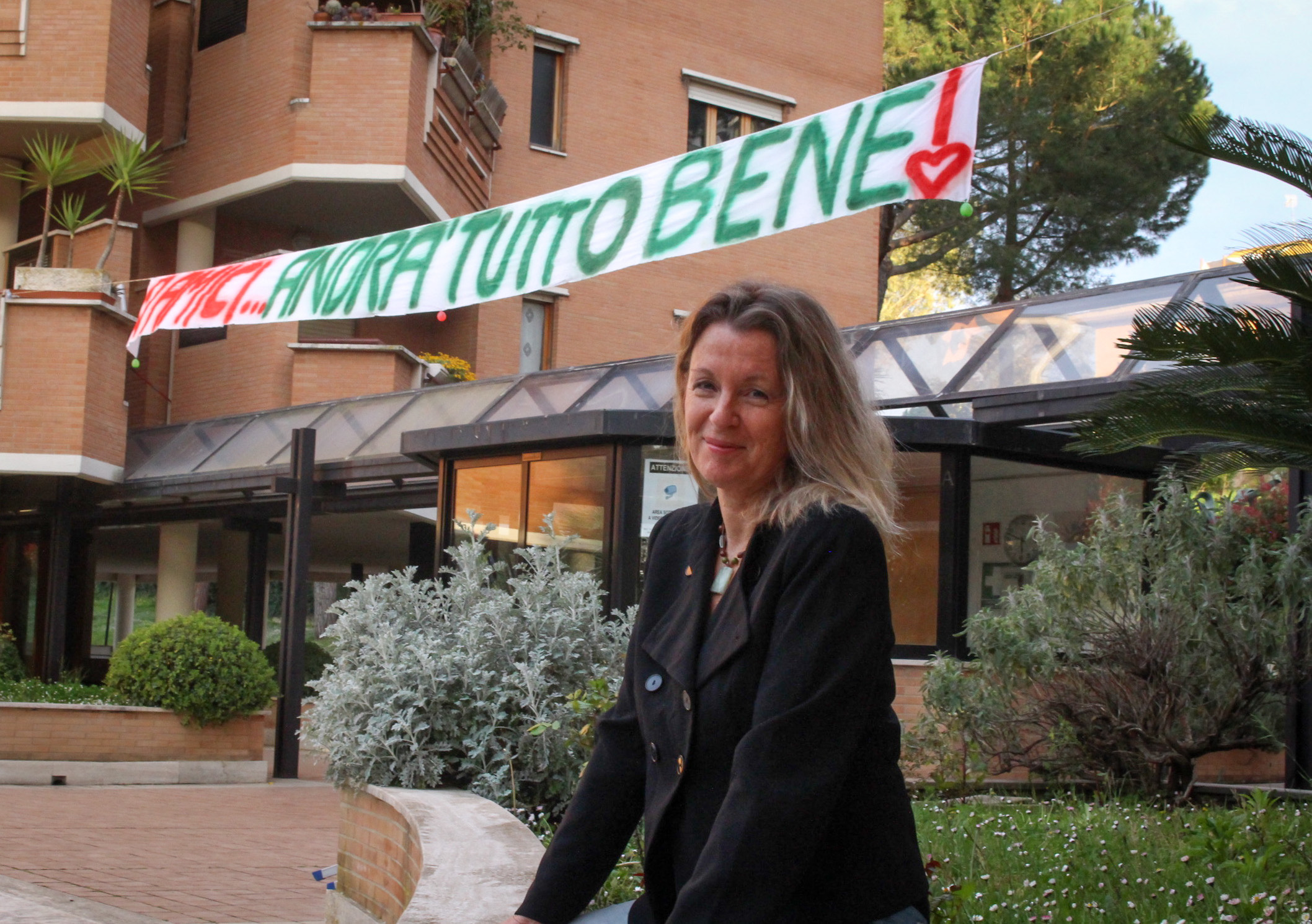
Io Resto a Casa
My 15-year-old daughter and I are living the coronavirus pandemic under strict lockdown conditions on the outskirts of Rome. On a good day, think summer camp meets spiritual retreat. Most days, it’s more like family therapy meets minimum security prison.
While Masha attends school online in her room, my daily program starts at 8 a.m. something like this:
• Get up, make bed, get dressed, have breakfast
• Study 60 minutes of Hungarian, and brush up on Russian, using DuoLingo
• Walk or run laps around our twin apartment buildings while listening to NPR
• Work on my portfolio for the Trinity College creative writing master’s program
• Prepare some healthful food, perhaps bake a loaf of gluten-free bread for Masha, who was recently diagnosed with Hashimoto’s disease, an auto-immune condition affecting the thyroid that can be accompanied by gluten sensitivity
• Talk with my partner, Andrea, who is quarantined with his elderly mother in Arezzo, about three hours north of here
• Read one canto of La Divina Commedia in the original Tuscan dialect of Latin, followed by the Longfellow English translation
I’ll come back to the schedule later, but you get the idea.
Mind, body, and soul are energized by death’s proximity. At the same time, the usual excuses for not establishing healthful habits or digging into cherished “someday” projects have been annihilated by the lockdown. I want to make the most of this rare alignment.
Isolation for weeks on end with my teenager is proving to be an important test laboratory for what has sometimes been a rocky mother-daughter relationship. With no escape, she and I are forced to live and let live, forming and pursuing our habits in parallel.
I struggle with the thought that I have been reduced to her dedicated servant, producing three meals a day and washing up afterwards. Surely, I was a better role model before I retired, before schools closed, before the national lockdown, before the nice Sri Lankan couple stopped coming on Saturdays to clean.
Weirdly, Masha and I seem to be bonding over the nightly announcement of Italy’s death toll. Until the quarantine, it had been months since she and I sat together on the sofa to enjoy a film or TV show. Now we are together every evening for about half an hour, huddled under blankets because of the chill in our upstairs study, waiting for the terrible number. Last night it was 969 new dead.
Of course, we do not enjoy the nightly update from Italian authorities, somber footage of army trucks rolling through darkened villages carrying bodies to storage or cremation, doorstop interviews with desperate, sleep-deprived doctors. Still, it is an unspoken acknowledgement that she and I are going through something important together.
We have both felt a surge of solidarity with the Italians, if not downright patriotism. Both our hearts were warmed by the news of medical supplies and doctors arriving from Russia, China, and Cuba to help treat the sick and dying in the Lombardy region. Already 45 of Italy’s front-line doctors have been killed by the virus.
We fret about Italy’s apparent 10-percent mortality rate and cast about for explanations. Are the Italians doing more autopsies? Counting more deaths as corona-related? Is it the older demographic profile? Business links with China? Are our hospitals less equipped? We do not utter the possibility of deficiency on the part of Italian doctors.
More than at any previous time, I notice my daughter taking responsibility for her schedule, her assignments, her own health and well-being, her awareness of what is happening in the world. There are fewer explosions over minor things.
When we come together for meals, we share news and debate and debunk fake news, but talk about the future in only the haziest of terms. Who can say what the situation will be come summer or for her senior year of high school?
One morning this week I awoke to Masha shouting, rattled. Having seen something on YouTube about people with auto-immune conditions being more vulnerable to coronavirus, she accused me of putting her life at risk with my daily outdoor exercise and weekly supermarket trips. She begged me to stop leaving the apartment and start rationing our existing food supply. (We held a family meeting with Andrea on Skype, did some online research, and contacted her doctor. Crisis averted.)
For now, I am relieved not to have to take the train to the city or the bus to the swimming pool or to Friday morning choir practice.
I am grateful to be quarantined in a spacious apartment with terraces outside the city center, where we see green hills by day and stars at night. I am grateful for the internet, kind neighbors, and fresh vegetables still available from the farm next door. I am grateful we are healthy and apparently not yet infected.
Toward evening, my program winds down along these lines:
• Wash dishes, take out the trash
• 20 minutes of yoga, 15 minutes with Sam Harris’s meditation app
• Baths and hot camomilla tea for us both
• Retreat to my room, pray incoherently to I don’t know what
• 11.30 p.m. sleep.
Sharon Lee Cowan retired last year as the UN Food and Agriculture Organization’s head of communication for Europe and Central Asia. She wrote this on March 28, 2020, the start of week four of Italy’s lockdown.











